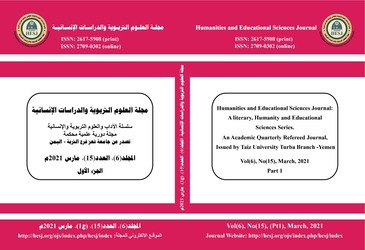The voice of the self in Al Qubaisi poetry Diwani (A Battle Without a Flag) and (Return to Ancient Places) as a model for a critical analysis study
Keywords:
the voice of the self, Al Qubaisi, Marakah Bila Raiyah (A Battle Without a Flag) diwan, Alodah Ila Al-amakin AL-qadimah (Return to Ancient Places) diwanAbstract
This research aimed to study the voice of the self in the poetry of Ghazi bin Abd al-Rahman Al-Qusaibi, by linking this voice to the poetic texts in his two diwans (Alodah Ila Al-amakin AL-qadimah) (Return to Ancient Places) and (Marakah Bila Raiyah) (A Battle Without a Flag). In that, he tries to search whether the sound of self in his poetry is ineffective narcissistic or creative sound that expresses the humanity's issues and concerns or something else. This study aims also to recognize the reasons that pushed the poet to such subjective tendency in his poetry and its role in the content and the literary rhetoric of Al Qusaibi poetry. It raises the question does the voice of the self visualize a special state, or does it express the self of others. This study is based upon the integrated approach. The study reached many results, the most important of which are:
The subject state for the poet is not subjective only but it also expresses others selves so its voice represents the collective ego. From that collective ego, Al Qusaibi started to create a great human literature that reflects supreme social issues that poet reacted with and reveal his attitude toward them. Moreover, he has many states of self so we find it a loving romantic self that has suffered the separation of beloved and also so sad self that suffers the despair and falling apart in front of such reality full of oppositions and gloomy. Moreover, alienation has spread itself and overwhelmed the self of poet till it became an important feature of his poetry. The poet also succeeded in using the space and time to reveal his subjective suffering.






